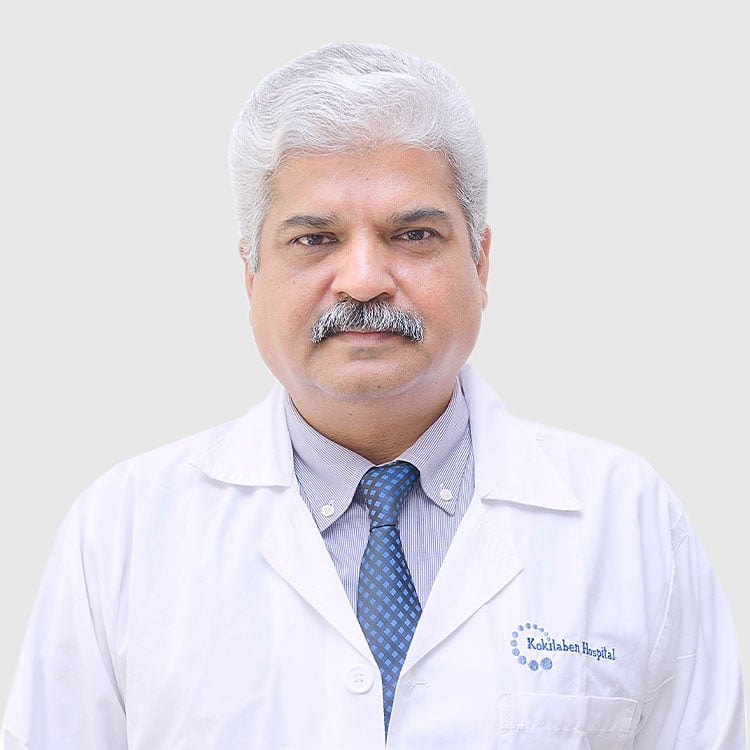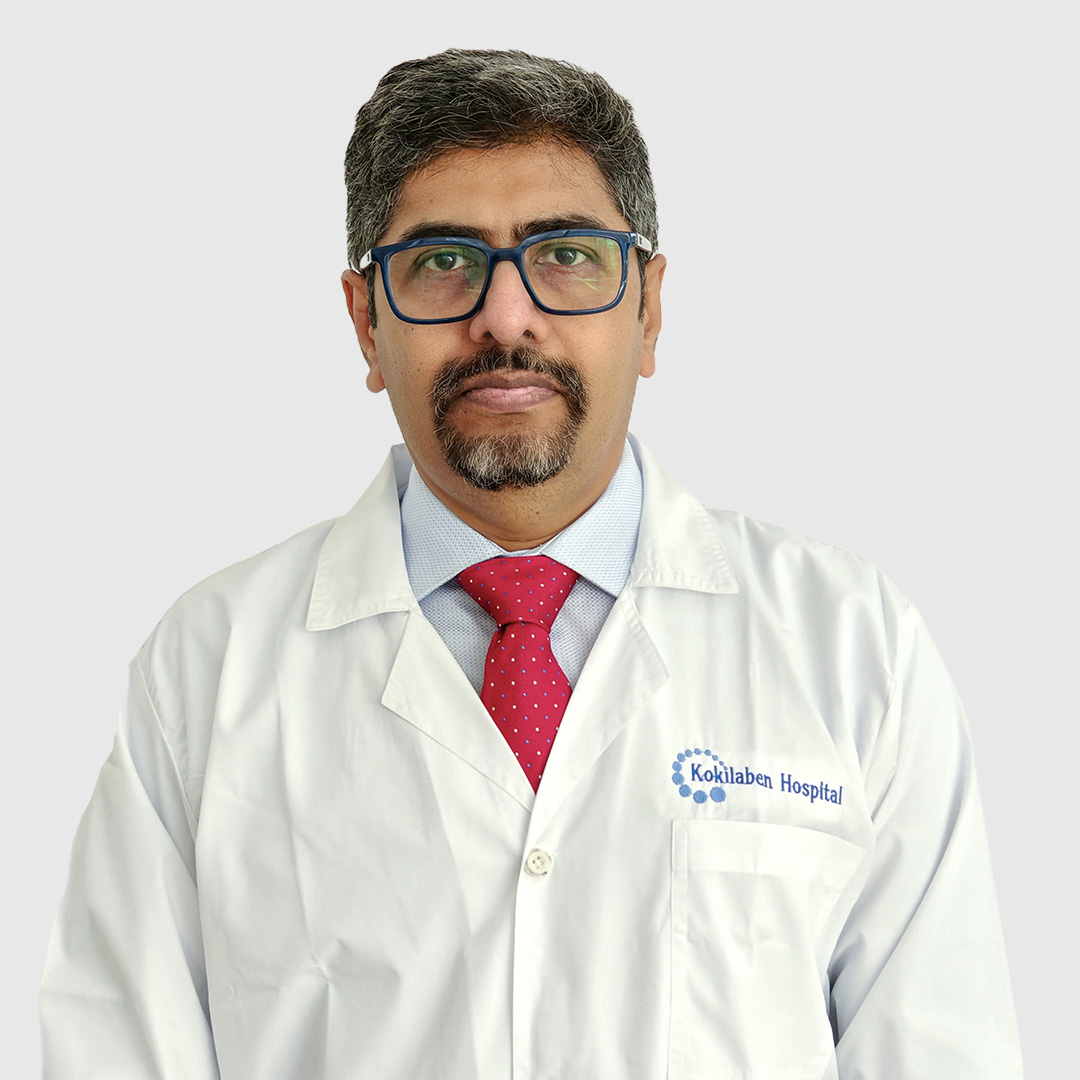Head and neck cancers are cancers that start in the tissues and organs of the head and neck. They include cancers of the larynx (voice box), throat, lips, mouth, nose, and salivary glands. Most types of head and neck cancer begin in squamous cells that line the moist surfaces inside the head and neck (for example, the mouth, nose, and throat).
Cancer of the head and neck are the most common cancers in India (30% of all cancers). Gone are the days when a stand-alone surgeon could treat a patient of head and neck cancer. Treatment of head and neck cancer now requires a multi-disciplinary approach with a team comprising of a head and neck cancer surgeon, a reconstructive surgeon, an onco-anaesthetist, a radiation oncologist, a medical oncologist, an onco-pathologist, a speech and swallowing therapist, a physiotherapist, a dental surgeon, an occupational therapist and a medical counsellor. This collaborative approach is followed at the Best Hospital for Head & Neck Cancer Treatment in Mumbai to ensure holistic patient care.
In the past, the treatment of head and neck cancer was only aimed at cancer-free survival. Issues like cosmesis, speech, swallowing, pain relief etc. were considered secondary. Over the last few years, the goals of such treatments have changed. Now, in addition to improved survival, we also aim to improve the quality of life of our patients with better cosmesis, better functional outcomes like normal speech, swallowing, taste, smell etc. Each member of the multi-disciplinary team works towards the goal of improving the quality of life of head and neck cancer patients. And, a good team can deliver excellent service with the support of advanced infrastructure.
Three substances greatly increase the risk of developing head and neck cancers :
A head and neck cancer can progress from primary site to the draining lymph nodes. Hemotogenous (through blood stream) is much less common in head & neck cancers.
The treatment requires a multidisciplinary approach with the team of Head and neck cancer surgeon, reconstructive surgeon, an onco-anaesthetist, radiation oncologist, a medical oncologist, an onco-pathologist, a speech and swallowing therapist, a physiotherapist, a dental surgeon, occupational therapist and a medical counselor. In the past the treatment was only aimed at cancer free survival. Issues like cosmesis, speech, swallowing, and pain relief were considered secondary. Over the last few years priority is given to improve the quality of life to our patients with better cosmesis and functional outcomes like speech, swallowing. Each member of the team works towards this goal, which is not possible without the required infrastructure.
Surgery : During surgery, the aim is to remove the diseased tissue and get healthy margins around it to be safe. The tissue removed is sent for a Pathological evaluation which takes approximately 8 – 10 days.
Radiation/Chemotherapy : After the report is reviewed, a call may be taken for further treatment like Radiation with or without chemotherapy. You may need further consultation with a Radiation and/or a Medical Oncologist for the same.
Additional treatment usually begins 4 – 6 weeks after your surgery.
He is the mainstay in the treatment of head and neck cancer patients. Early stages of these types of cancer require surgery which can be done with lasers. Lasers have an advantage over conventional surgery in that they cause less pain, less fibrosis and therefore less trismus and better cosmesis. Micro-laryngoscopic lasers can avoid the need for open surgery. Intermediate stage laryngeal cancers require conservative partial laryngectomies. Advanced head and neck cancer requires extensive surgeries such as composite resection (called commando operation in the past), total laryngectomy with or without pharyngectomy, etc. Kokilaben Hospital provides the entire range of surgeries, from lasers to conservative laryngeal surgeries to extensive surgical resections.
Extensive surgeries for the treatment of head and neck cancers are almost always associated with major cosmetic and functional deformities which require reconstruction by a specially trained plastic surgeon. With an array of pedicled and free flaps specially suited to the requirements of an individual patient, the deformity of this extensive surgery is minimised to a great extent.
Kokilaben Hospital has a dedicated team of head and neck cancer surgeons and reconstruction surgeons. The goal of this team is to radically eradicate cancer with the best possible cosmetic and functional results.
The last few years have seen the emergence of various effective chemotherapy drugs. These are found to be effective before, during and after surgery/radiotherapy. Targeted therapy has shown the promise of being as effective as chemotherapy, but with much lower toxicity. Kokilaben Hospital has facilities which can provide chemo/targeted therapy to both in-patients as well as through day care therapy.
The administration of anaesthesia to head and neck cancer patients is always challenging due to the presence of tumours in the upper air-digestive tract, trismus etc. Specially trained anaesthetists to deal with these difficult intubation situations, with facilities for fibre-optic intubation is essential to perform these procedures.
Kokilaben Hospital has a dedicated onco-anaesthetist as well as the best possible infrastructure to tackle these difficult procedures.
In the past, the role of the pathologist was limited only to report the biopsy. But, now we have a plethora of pathological prognostic factors which have been found to have an impact on both treatment as well as prognosis of head and neck cancers. A specially trained histo-pathologist has become an integral part of our head and neck cancer team. Kokilaben Hospital has specially trained onco-pathologists available to cater to our patients.
No Head & Neck Cancer Centre is complete without rehabilitation services. The treatment of head and neck cancers has a significant impact on essential functions like speech, chewing, swallowing etc. Now, even a patient of total laryngectomy or total glossectomy can speak and swallow normally. Kokilaben Hospital has one of the best rehabilitation departments which includes speech and swallowing therapy, physiotherapy and occupational therapy. A comprehensive speech and swallowing restoration programme begins with pre-op evaluation and counselling, it continues during the post-operative period and during radiotherapy. It consists of a speech and voice management programme, maneuvers and strategies to improve swallowing and an alaryngeal speech restoration programme.
All these facilities are backed by state-of-the-art Operation Theatres, Intensive Care Units and a dedicated and committed team of professionals.
The first Trans Oral Robotic Surgery in Mumbai was performed at Kokilaben Hospital for an oral tumour.
Background and diagnosis : A patient came to us with growth on the tonsils. This was diagnosed as tonsillar sarcoma, a rare malignant tumour of the tonsil. This is an area very prone to bleeding and pain after surgery. Also, patients may have difficulty in swallowing food because of rawness in the mouth.
Treatment : With the Da Vinci robotic surgery system, the tumour was removed radically and all complications were minimised.
Outcome : Healing of the oral wound was faster and the patient could resume swallowing faster, resulting in adequate nutrition. This, in turn, accelerated the healing process.

Cancer/Surgical Oncology, Robotic Surgery, Minimal Access Surgery
Esophageal surgery: VATS and Robotic; Pulmonary surgery (Malignant and Benign): VATS and Robotic; Cancer of Thymus and other mediastinal masses; Chest wall tumours; Gastric Cancer; Head Neck Oncology

Cancer/Surgical Oncology, Robotic Surgery
Robotic assisted Surgeries, Head and Neck Cancer Surgeries, Head & Neck Onco Surgery, Trans Oral Robotic Surgeries (TORS), Laser surgeries (Laryngeal & Oral) Conservative, Laryngeal Surgeries, Minimally invasive Parathyroidectomy and Thyroidectomies for Benign and Malignant cases